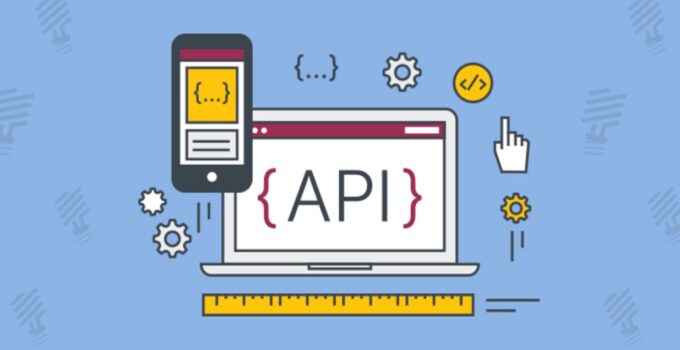A social media API is a type of application programming interface (API) that enables developers to access specific functions or data of a social media platform. This allows them to integrate the platform with other applications and websites, allowing users to interact with the underlying technology in new and innovative ways.
By utilizing a social media API, developers can access the underlying functions of a social media platform, such as: user accounts, posts, comments, likes/dislikes, and other various types of data. With this access to the underlying code base of a platform, developers can create applications that provide new ways for users to interact with the social media platform.
For example, a developer may use the Twitter API to create an application that allows users to post their own tweets directly from the app instead of having to use the Twitter website. Additionally, a developer may use a Facebook API to create an application that allows users to view and interact with posts from their friends on the platform.
How to use a social media API to grow your business

Source: oyova.com
Social media applications have become a powerful tool for businesses to reach their target audiences and interact with customers in meaningful ways. Through the use of APIs, companies can now access the data they need to easily create and manage their social media presence. By leveraging this technology, businesses are able to gain valuable insights into customer engagement, better understand customer preferences, and build relationships with their audiences.
Using a Data365 social media API can help businesses automate processes such as monitoring comments, posting updates, and tracking analytics. This saves time and effort, allowing business owners to focus their resources on other projects. APIs also provide access to powerful features that wouldn’t be available through manual methods such as automated moderation of customer comments or automated customer segmentation.
Another advantage of using a social media API is that it can be used to integrate other applications into the business’s workflow. This can help businesses automate tasks such as sending notifications when customers leave reviews, creating custom reports for tracking customer engagement, and integrating third-party analytics tools.
The benefits of using a social media API

Source: outboundengine.com
The use of a social media API can provide a range of advantages for businesses and individual users alike. By leveraging the power of social media, businesses can create more meaningful connections with their customers, engage with them on a deeper level, and ultimately drive better results in terms of sales, brand loyalty, and customer engagement.
For individuals too, a social media API can be an invaluable tool. By enabling users to access specific data points, such as follower counts and interactions, they can gain insights into the performance of their content and the success of their campaigns. Furthermore, by accessing multiple networks at once, they can easily compare different strategies across different platforms quickly and efficiently.
Finally, the use of social media APIs also offers the potential for automation, which can significantly reduce time spent on manual tasks and enable businesses to focus more resources on their core activities. Automation can help streamline processes such as customer service and lead generation, while freeing up valuable staff to work on other areas of the business.
How to choose the right social media API for your business

Source: verticalresponse.com
With the proliferation of social media in our day-to-day lives, it’s essential for businesses to have access to a reliable, secure social media API. A social media API allows businesses to integrate their product or services with popular social networks and harness the power of user engagement. But with so many different social media APIs out there, how do you know which is the best for your business?
The first step to choosing the right social media API for your business should be determining what types of features you need and what integrations will best suit your business’s objectives. Consider factors such as whether you need support for multiple networks, or if specific ones are essential for your product. Additionally, consider the level of engagement you’d like to achieve with users and whether a particular API can meet those goals.





